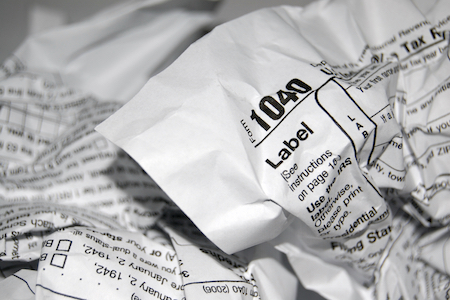
4 Common Payroll Tax Mistakes to Avoid
Misclassifying Workers
Misclassifying employees is the most common mistake that business owners make. Although the cost of independent contractors is less than employees, you don’t have the option to select what label each worker has. Each of your worker’s classification depends on the amount of control you have over the worker.
Employees
- With employees, you have the right to say when there, and how the work gets done
Independent Contractors
- The IRS states that an independent contractor and the employer do not intend to have any employer-employee relationships
It is important that your entire working staff is properly identified. If you have any doubts, consult with a tax advisor. Not Using Accountable Plans For Reimbursements As a business owner, you come across employee related costs. From traveling for conferences to treating your employees to a night out, without an accountable plan, you will not be reimbursed. An accountable plan will allow you to deduct the expenses, but avoid all payroll taxes on reimbursements. To start an accountable plan, you, as the business owner, but formalize the agreement and set reasonable times for action. Find out if your business qualifies for accountable plans here.
Not Keeping Records of Payroll
As a business owner, you are required to maintain payroll records and have them available for IRS inspection. What many business owners don’t know is that your payroll records are more than just a balanced checkbook. Payroll records include:
- Time Sheets
- Expenses Accounts
- Copies of W-2 Records
- Job Evaluations, and more
Without these records on hand, your business could be audited and fined.
Paying Creditors Before the IRS
In times of poor cash flow, many business owners tend to choose to pay off creditors before the IRS. This is a big mistake. Although there may seem like little you can do to appease both creditors and the IRS in times or poor cash flow, there is a solution. Payroll factoring is a great way for business owners to secure capital for both the IRS and creditors. With payroll factoring, an invoice factoring company purchases your outstanding invoices and advances your business up to 95% of the total amount with low rates. This eliminates the 30, 60, or even 90 day wait that you encounter with your clients. By using payroll factoring, you can get cash for your invoices practically overnight – without incurring any additional debt to your name. As a business owner, you have many responsibilities. We hope that you have a better understanding of how to avoid the 4 most common mistakes when it comes to your payroll.


 Since 1991 I specialize in Invoice Factoring, PO financing and ABL facilities. I currently work internationally with companies in the US and Canada via our internet marketing division. Specialties: Accounts Receivable Factoring and Payroll Funding for Manufacturing, Oil & Gas, Telecommunications, Wholesale Trade Distribution, Staffing and Transportation. I always enjoy helping companies rise to the next level of success.
Since 1991 I specialize in Invoice Factoring, PO financing and ABL facilities. I currently work internationally with companies in the US and Canada via our internet marketing division. Specialties: Accounts Receivable Factoring and Payroll Funding for Manufacturing, Oil & Gas, Telecommunications, Wholesale Trade Distribution, Staffing and Transportation. I always enjoy helping companies rise to the next level of success.